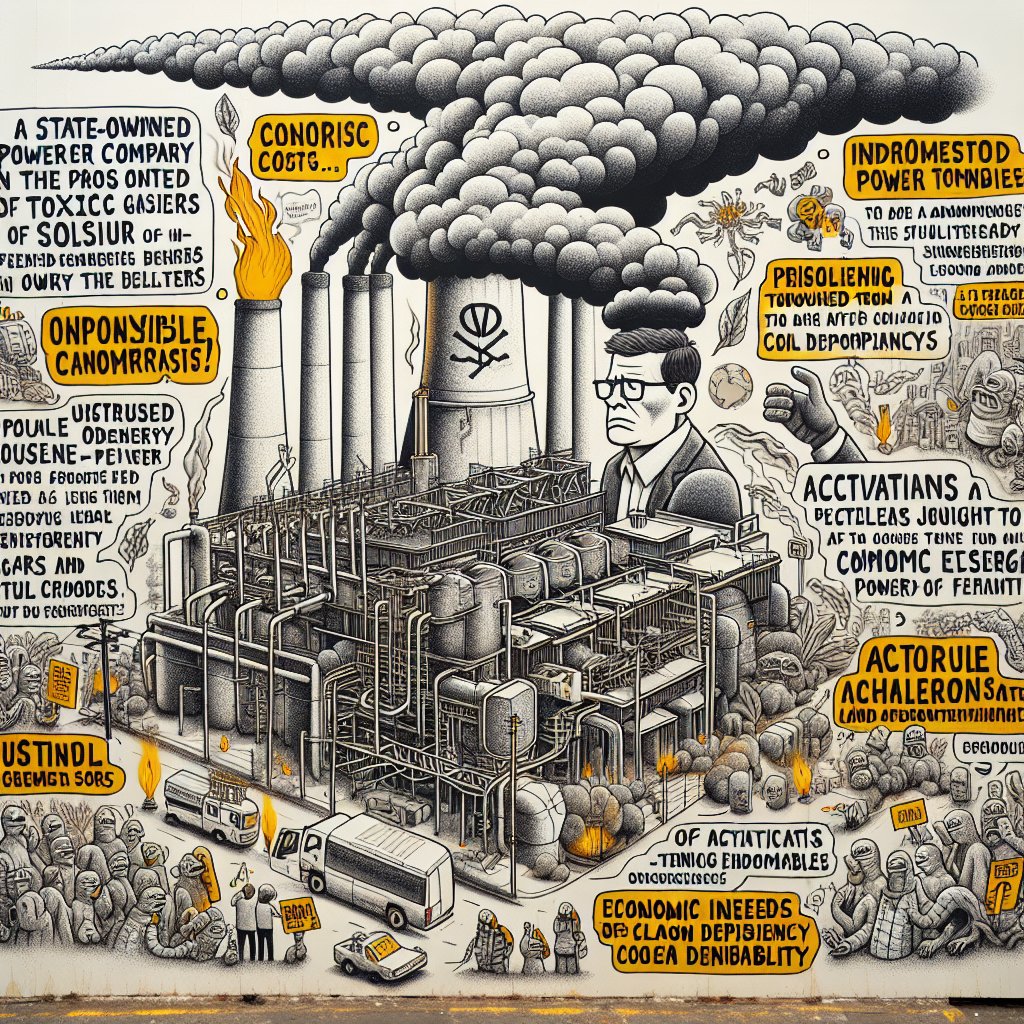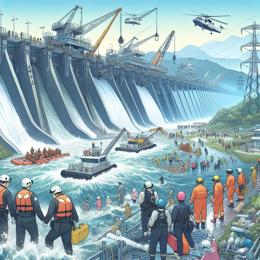Content created by AI
Eskom's Coal Legacy: Polluter of the Year and a Troubled Climate
South Africa's state-owned power company, Eskom, has earned an infamous title from the readers of Our Burning Planet: the Polluter of the Year, outstripping even the Minister of Mineral Resources and Energy for this dubious honor. The moniker underscores the deep-running concerns over Eskom's role in environmental degradation and public health crises, fueled by its aging fleet of coal-fired power plants that spread toxic gases across the nation.
New reports and figures lay bare Eskom's startling impact on the environment. The Centre for Research on Energy and Clean Air (Crea) published alarming statistics, revealing that Eskom's 15 coal power stations emit an overwhelming 1.6 million tonnes of sulphur dioxide (SO₂) annually. To illustrate the magnitude of this problem, it's more than the combined SO₂ emissions of the power sectors in the European Union and United States, or even those of the U.S. and China.
The ramifications of such emissions are severe. The toxic gases contribute to high levels of ambient air pollution with devastating health impacts, linked to roughly 2,200 deaths each year. The damage is not merely to public health but also to the economy. If the decommissioning of these coal plants were postponed to 2030 or later, it would result in an estimated 15,300 excess air pollution-related deaths and economic costs soaring to R345-billion.
The air pollution hot spots — the Mpumalanga Highveld, Vaal Triangle, Waterberg district in Limpopo, and Bojanala district in North West — are confronting air quality levels that fail to meet national standards. Eskom, with 12 coal-fired stations in Mpumalanga and two in Limpopo, is named as the primary contributor.
A milestone ruling from the high court in March 2022, known as the "Deadly Air" judgment, acknowledged that the air pollution in the Highveld Priority Area violated the fundamental constitutional right to a healthy environment. The onus is now on the government to hold major polluters accountable.
Legal experts and activists have accentuated that decisions failing to shield the public from significant health risks are not only environmentally detrimental but also a violation of the right to life. The narrative is personal for many, like Thomas Mnguni, an environmental campaigner living in Middelburg, Mpumalanga. He narrates the direct impact of pollution on his children's health and quality of life, beset with respiratory problems exacerbated by the filthy air.
The story of Eskom and its relentless pollution unfolds amidst a backdrop of a global push towards clean and renewable energy sources. The imperative for South Africa is clear: pivot away from coal dependency and adopt energy solutions that protect the health and well-being of its people and their environment.
As Eskom lobbies for exemptions from clean air regulations, and with temporary allowances to bypass vital emission control systems at plants like Kusile, the balance between economic needs, energy demands, and environmental health remains precarious. Stakeholders, from the government to civil organizations, must address this pressing challenge, steering the country towards a sustainable and healthful energy future.










